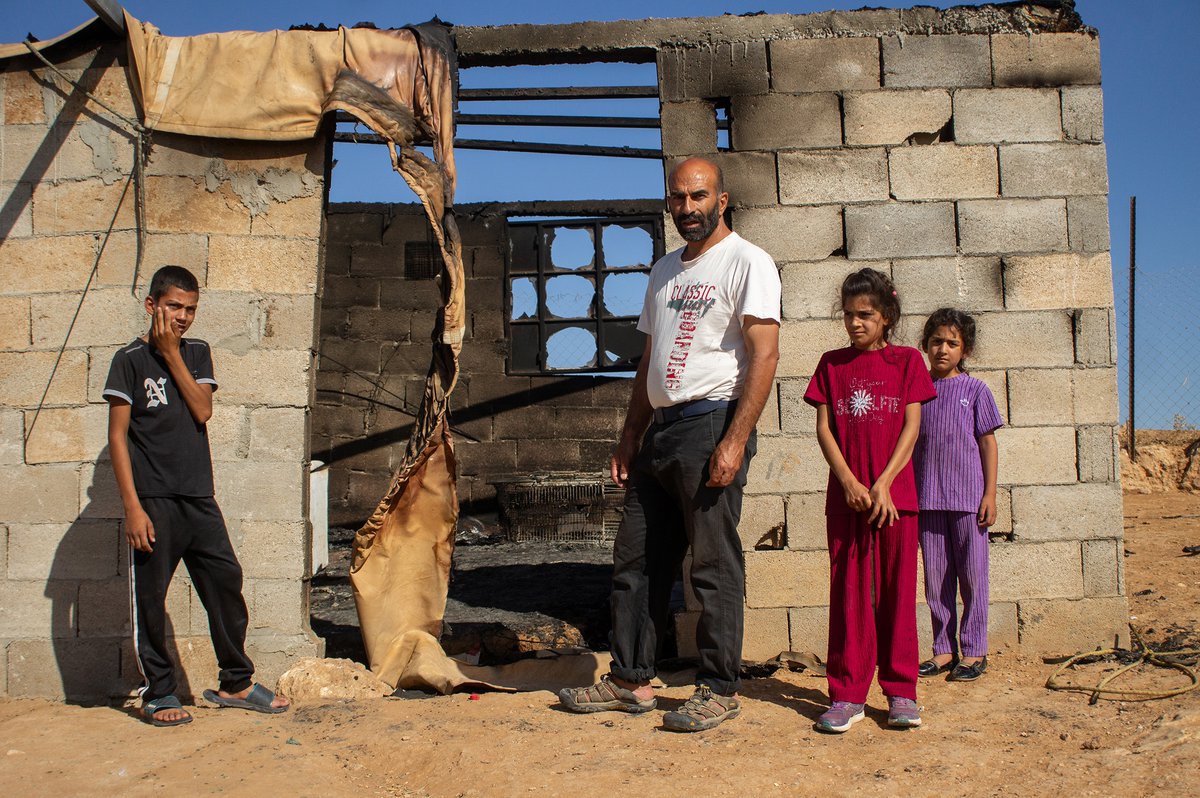When Palestinian filmmaker Hamdan Ballal was violently attacked by Israeli settlers outside his home in the West Bank village of Susiya in late March, the mainstream news and Hollywood tabloids rushed to cover the story, with nearly all of them making reference to Ballal’s recent Academy Award for his directorial work on the film No Other Land. In a cruelly ironic sense, his Best Documentary accolade accomplished exactly what Ballal and his co-creators had hoped it would: bringing international attention to a cluster of Palestinian villages called Masafer Yatta, whose communities, including Susiya, face constant settler violence, military oppression, and home demolitions.
A week after Ballal was attacked, arrested by the Israeli military, and briefly hospitalized for his injuries, Jinba, another Masafer Yatta village, was raided by settlers and soldiers who acted in tandem, destroying windows and security cameras and arresting more than a dozen men with no cause. But with no Oscar winner living in Jinba, the story received only a fraction of the attention.
In the months after No Other Land’s win, settler violence has continued in Masafer Yatta, but the mainstream news coverage has all but vanished. On June 24, settlers from a nearby Israeli outpost—one of many that operate throughout the West Bank in defiance of both Israeli and international law—set Ballal’s neighbor’s home on fire. The attack received virtually no press coverage.
Nasser Nawaja, a resident of Susiya and a field worker for the Israeli-Palestinian human rights nonprofit organization B’tselem, tells The Progressive that the family was unharmed. Nawaja says he did not personally witness arsonists setting the fire that destroyed their kitchen and living room, but that he and other witnesses saw two settlers fleeing the scene toward an outpost owned by settler Gadi Lusky, who has allegedly attacked local Palestinians in the past.
Since the arson attack, sources in the region have reported almost daily settler attacks—including physical assaults—on people and homes in Susiya. Ballal tells The Progressive that a Susiya resident in his twenties was injured on June 26 when settlers threw a stone at his stomach. According to Nawaja, another villager suffered internal bleeding after she was physically attacked by a settler.
Ballal believes that the initial media attention from the Oscar win has led to backlash from the nearby settlers. During one of the recent attacks in Susiya, Ballal says he overheard a settler refer to his home as “the Oscar house.” The constant violence has had a psychological effect on the villagers as well: Ballal says many villagers are staying up through the night because they’re afraid to sleep, worried their homes will be attacked.
Josh Kimmelman, a Jewish-American activist with the Center for Jewish Non-Violence (CJNV) who was physically harmed during the settler attack in Susiya in March, points out the falloff in media coverage since the Oscars. “As just one of the activists attacked, I did over fifteen interviews about it,” Kimmelman says. “I’m dismayed by how little coverage the attacks on Susiya, and other villages in Masafer Yatta, have gotten now that the Oscars are less recent.”
Anna Lipman, who was also in Susiya with CJNV, says that while the Oscar win brought media attention to Susiya, it failed to translate into any concrete action or assistance in support of Palestinians in the West Bank. “The world watched the award show, but it fails to pay attention to the suffering of the people of Masafer Yatta,” Lipman says.
Despite the current lack of media coverage around the settler assaults, the people of Susiya have been no stranger to international press, even before Ballal’s Oscar win. In 2015, when the Israeli Defense Minister announced plans to demolish Susiya, a campaign of international pressure played a key role in saving the village from demolition.
Within the community, opinion is split on whether renewed press attention can help bring about change. Ballal believes that the current political climate makes this approach less viable: world leaders, he says, “don’t care about international law or human rights.” But Nawaja says that the capacity for this level of international pressure still exists, and believes it “needs to go up a level” to protect the village once again.

